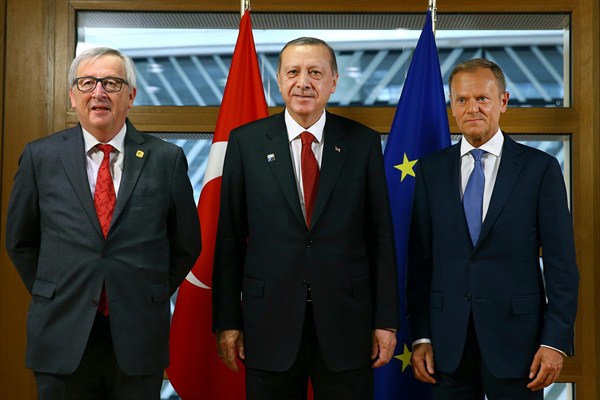Editor’s Note: This article is part of an ongoing series about NATO members’ contributions to and relationships with the alliance.
Just days before the recent NATO summit in Brussels, Turkey moved to block Austria’s involvement in alliance operations, the latest example of how Turkey’s various rifts with European countries threaten alliance cohesiveness. Turkey’s relationship with NATO is also being tested by divergent views on how best to combat the self-styled Islamic State. In an email interview, Emre Caliskan, a Turkish analyst and co-author of “The New Turkey and Its Discontents,” describes Turkey’s traditional role in NATO and how it might be shaped by these challenges.
WPR: What has Turkey’s role traditionally been in NATO, and how has it evolved in recent years?

